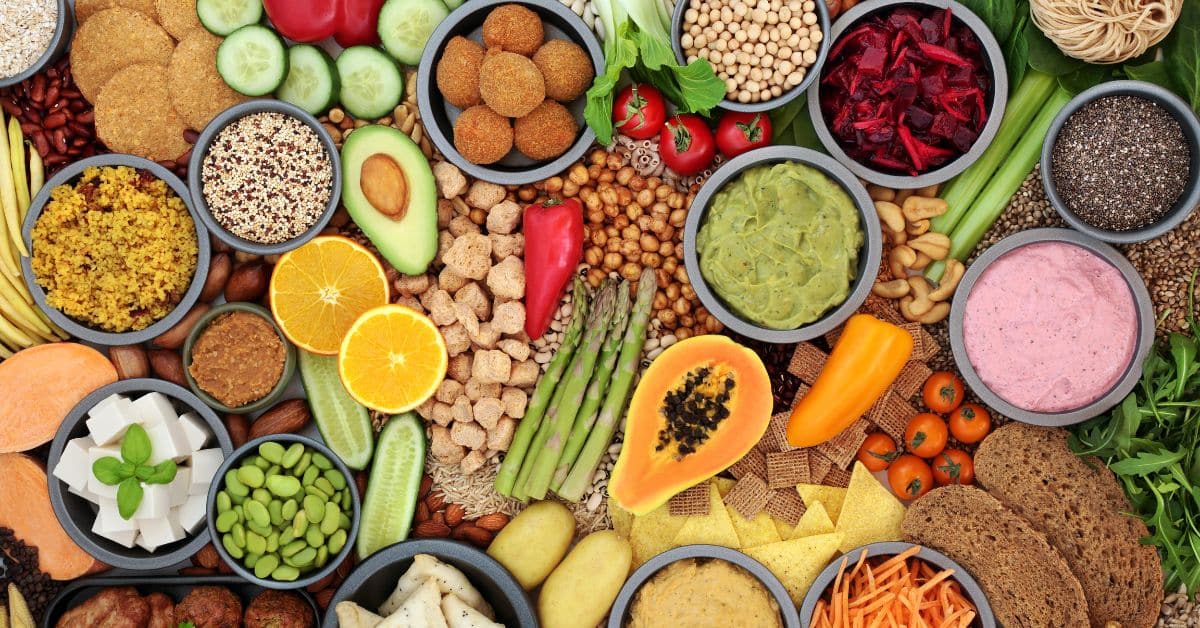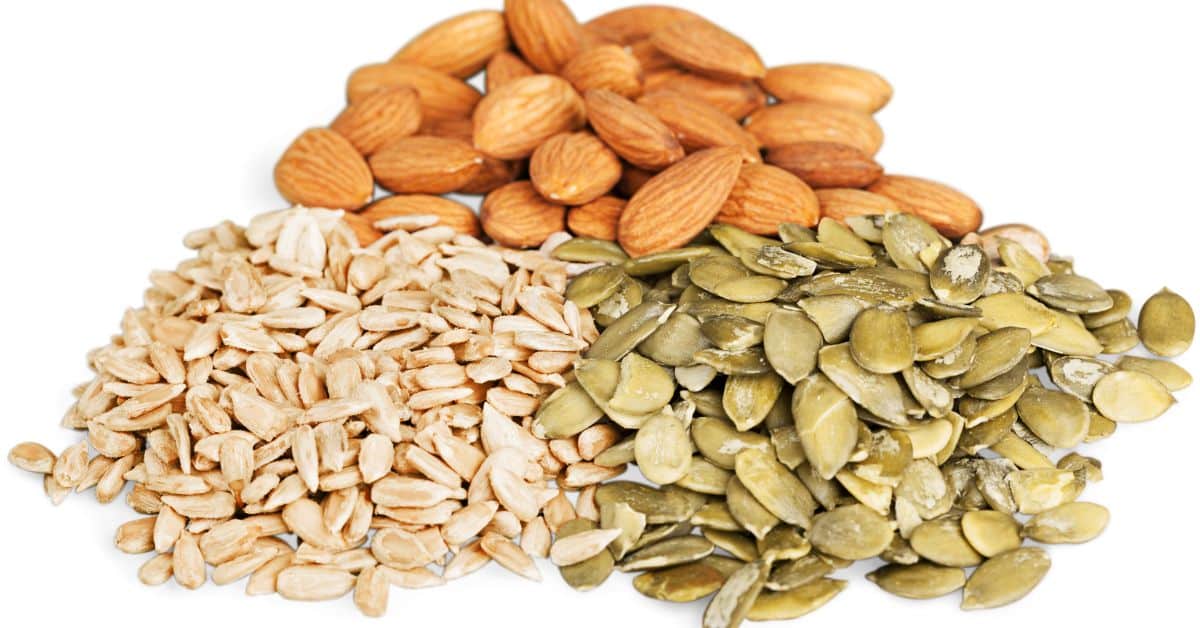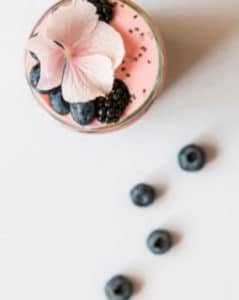Plant-Powered and Pregnant: A Mindful Approach to Nourishment
More and more individuals are being drawn to a vegan lifestyle each year, inspired by a variety of heartfelt reasons. Some are moved by compassion for animals and the planet, while others are seeking vibrant health and vitality through the healing power of plants. Whatever the inspiration, transitioning to a plant-based way of living is a beautiful opportunity to nourish the body, mind, and spirit. If you are considering or have started our vegan pregnancy, we are here to help. And like all journeys, it’s best approached with intention, care, and clarity.
The Academy of Nutrition and Dietetics affirms that well-planned vegetarian and vegan diets are not only safe and adequate, but can also offer meaningful health benefits. Plant-based diet patterns support prevention and even treatment of certain chronic conditions across all stages of life. The emphasis, of course, is on thoughtful planning, especially during sacred seasons such as pregnancy, when nutrient needs gently shift and expand to support both mother and baby.
During pregnancy, the body’s needs for many vitamins and minerals increase to support optimal development and energy balance. These include vitamin A, D, folate, niacin, riboflavin, thiamin, B6, B12, vitamin C, iron, and zinc, alongside greater needs for protein and overall calories.
For those walking the plant-based path during pregnancy, a little extra mindfulness around specific nutrients can help ensure that mama and baby are deeply nourished. In the sections below, we’ll explore vegan pregnancy and how to support the body’s increased nutrition needs, so you can feel empowered, supported, and radiant during this special chapter.

Supporting Life with Intention: Vital Nutrients for Vegan Mamas
Pregnancy is a sacred season of growth, and with it comes a natural rise in the body’s need for key nutrients to support both mama and baby. For the plant-based Mama, it’s especially important to bring awareness to certain nutrients that may require a little extra care. During this time, your body calls for more vitamins and minerals, including vitamin A, D, folate, niacin, riboflavin, thiamin, B6, B12, vitamin C, iron, and zinc. Pregnancy also calls for an increase in both calories and protein to sustain the beautiful work happening within. With intention and loving attention, it is absolutely possible to meet these needs during a vegan pregnancy while staying true to your values and nourishing yourself fully.

Vitamins and Minerals During a Vegan Pregnancy
Iron: A Foundational Mineral for Mama and Baby
Iron plays a vital role in the body, even before pregnancy. It supports the creation of healthy red blood cells, ensures oxygen is carried efficiently from the lungs throughout the body, and helps maintain vibrant energy and vitality. During pregnancy, your iron needs gently increase to support the expanded blood volume needed for both you and your growing baby. Iron also supports fetal brain development, healthy growth, and plays a key role in hormone regulation and cellular processes. When iron intake is too low, it can increase the risk of preterm birth and low birth weight, two outcomes we naturally want to guard against with mindful nourishment.
There are two primary forms of iron:
- Heme iron – Found in animal-based foods like red meat, poultry, and fish.
- Non-heme iron – Found in plant-based sources such as leafy greens, legumes, whole grains, nuts, seeds, fortified cereals, and blackstrap molasses.
As plant-based eaters, we primarily rely on non-heme iron, which is a bit less bioavailable, meaning the body doesn’t absorb it quite as efficiently. This is often due to the presence of natural compounds like polyphenols, oxalates, and phytates in these foods, which can bind to iron and slightly hinder its absorption. These compounds are found in many nourishing plant foods such as teas, cocoa, nuts, seeds, legumes, and whole grains.
The good news? You can support iron absorption simply by pairing iron-rich foods with sources of vitamin C and vitamin A. Beautiful combinations include lentils with red bell peppers, leafy greens with citrus, or oatmeal topped with strawberries and kiwi.
The Recommended Dietary Allowance (RDA) for iron rises from 18 mg per day for non-pregnant women to 27 mg during pregnancy. Even with a thoughtful and nutrient-dense plant-based diet, reaching this level through food alone can be quite challenging. For this reason, iron supplementation is recommended for all pregnant women, and most prenatal vitamins include a supportive dose. This guidance applies across all dietary patterns, but it becomes especially important when nurturing a vegan pregnancy.
With a little extra care, you can absolutely meet your iron needs while honoring your plant-based lifestyle and supporting the amazing work your body is doing.

Calcium: Supporting Strong Bones, Balanced Nerves, and Growing Life
Calcium is a deeply important mineral, one that supports not only the structure of our bones and teeth but also plays a crucial role in the nervous system, helps with muscle function, and supports proper blood clotting. During pregnancy, your body’s need for calcium increases to nurture both your well-being and your baby’s development.
Before pregnancy, the Recommended Dietary Allowance (RDA) for calcium is 1,000 mg per day. During pregnancy, this need gently rises to somewhere between 1,200 and 1,500 mg per day. Of this, approximately 50–330 mg is devoted solely to your baby’s growth—building their tiny bones, teeth, heart, and muscles.
During a vegan pregnancy, there are many appealing, plant-based sources of calcium to explore:
Fortified plant milks, tofu, tahini, almond butter, oranges, broccoli, bok choy, kale, collard greens, dried figs, green soybeans (edamame), white beans, chickpeas, red beans, non-dairy yogurts, fortified cereals, fortified oatmeal, and fortified orange juice.
That said, it’s important to be mindful of how calcium is absorbed. Many wholesome plant foods also contain oxalates, which are natural compounds that can reduce calcium absorption. Vegetables such as spinach, rhubarb, beet greens, and Swiss chard are higher in oxalates, meaning their calcium isn’t absorbed as easily by the body. On the other hand, foods like fortified soymilk, bok choy, kale, and broccoli offer highly absorbable forms of plant-based calcium.
Vitamin D is also a key partner in calcium absorption. Ensuring you’re receiving enough, whether through safe sun exposure, food, or supplementation, is a necessary way to support your body’s ability to use the calcium you’re consuming.
And while cozy rituals like coffee or tea are part of many people’s daily rhythms, it is helpful to enjoy these beverages a few hours apart from your most calcium-rich meals, as caffeine can hinder calcium absorption.
Getting enough calcium during pregnancy is vital. Low calcium levels have been associated with an increased risk of preterm birth, pregnancy-induced high blood pressure (including preeclampsia), and short-term changes to maternal bone density. With mindful choices and awareness, you can meet your calcium needs on a vegan diet.

Vitamin D: Soaking in the Sunshine for Strong Foundations
Vitamin D is often referred to as the “sunshine vitamin” for good reason, as our bodies naturally produce it when our skin is kissed by natural sunlight. It’s a remarkable and innate process, yet in our modern lives, many of us may not receive enough sun exposure to meet our needs. Whether it’s due to spending more time indoors, living in less sunny climates, wearing high-SPF sunscreen, living in a larger body, or having richly pigmented skin, our ability to produce and use vitamin D can be reduced.
While some plant-based foods do offer small amounts of vitamin D, they may not be sufficient during the sacred time of pregnancy. Vegan-friendly sources include fortified non-dairy milks, fortified breakfast cereals, fortified plant-based spreads, and sun-exposed mushrooms. These are helpful additions, but they often fall short of the increased needs during this time of rapid growth and transformation.
To support both your body and your baby’s development, it’s recommended that pregnant women following a vegan lifestyle take a daily vitamin D supplement containing 400 IU (10 micrograms)—and ensure that their prenatal vitamin includes vitamin D as well. A high quality prenatal vitamin is enough in some cases. Consult with your health care provider to make the right supplement decisions for your pregnancy.
Vitamin D plays a key role in building the foundation of your baby’s health, contributing to the development of strong bones, kidneys, the nervous system, teeth, and the heart. By supporting your vitamin D levels, you’re nurturing both yourself and your little one in a truly essential way.

Folate: Gently Guiding Early Development
Folate is one of the most important nutrients to focus on in early pregnancy, and even before conception begins. It plays a vital role in the formation of the neural tube, which becomes your baby’s brain and spinal cord. When folate levels are too low, the risk of neural tube defects, including conditions like anencephaly (where parts of the brain and skull do not fully form), can increase.
Because the neural tube develops so early, often before many women even realize they’re pregnant, it’s essential to begin nourishing the body with folate well before conception, if possible. The general recommendation is 400 micrograms (mcg) per day before pregnancy, and 600 mcg per day during pregnancy to provide extra support during this deeply formative time.
One of the many gifts of a plant-based lifestyle is that lots of folate-rich foods are already a natural part of a vegan plate. These include dark leafy greens like spinach, romaine, and kale, as well as asparagus, broccoli, Brussels sprouts, avocados, grapefruit, beans, lentils, fresh fruits, and whole grains.
While a thoughtful vegan diet often provides abundant folate, it’s still important to ensure your prenatal vitamin includes this essential nutrient, ideally in the form of methylfolate, the active and more bioavailable version, especially for those who may have difficulty converting synthetic folic acid.
By weaving folate-rich foods and thoughtful supplementation into your vegan pregnancy, you’re offering your body and baby an abundant foundation for growth, vitality, and well-being.

Vitamin B12: A Vital Nutrient for Energy, Mood & Development
Vitamin B12, also known as cobalamin, is an essential nutrient that supports the health of both your nervous system and blood cells for you and your growing baby. Alongside folate, B12 plays a crucial role in preventing neural tube defects such as spina bifida. It also supports emotional well-being by helping the body break down carbohydrates, proteins, and fats, contributing to balanced energy and a steadier mood throughout pregnancy.
For vegan mamas, B12 is one of the few nutrients that isn’t naturally abundant in plant-based foods. While certain products like fortified breakfast cereals or nutritional yeast may offer small amounts, they often aren’t enough to fully meet your needs during a vegan pregnancy. You may have heard of spirulina or other algae-based products being used for B12, but it’s important to know that these contain pseudovitamin B12, a form the body cannot absorb or use effectively.
To nourish both you and your baby, supplementation is recommended. Before pregnancy, the RDA for vitamin B12 is 2.4 micrograms (mcg) per day. During pregnancy, that need slightly increases to 2.6 mcg per day. Most high-quality prenatal vitamins include a supportive dose, but it’s always wise to check the label to be sure. Ideally, choose a form like methylcobalamin, which is active and more readily used by the body.
As always, consider having an open, heart-centered conversation with your healthcare provider or a dietitian familiar with vegan nutrition. They can help you fine-tune your supplementation and ensure you’re fully supported on this sacred journey.

Zinc: Supporting Growth, Immunity, and Baby’s Brilliant Beginnings
Zinc is a gentle yet powerful mineral that plays a vital role in cell growth, wound healing, protein synthesis, and maintaining a strong and balanced immune system. It helps the body create antibodies, those protective messengers that keep you and your baby resilient and well. During pregnancy, zinc becomes even more essential, supporting the development of your baby’s DNA, aiding in brain formation, and laying the groundwork for future learning and cognitive health.
The Recommended Dietary Allowance (RDA) for zinc is 8 mg per day before pregnancy and increases to 11–12 mg per day during pregnancy to support this time of creation and expansion.
For those following a plant-based lifestyle, it’s important to be especially mindful of zinc intake. Research shows that vegan and vegetarian women may not always meet their zinc needs before pregnancy, making it even more important to give this mineral intentional attention.
Some nourishing, zinc-rich plant foods include:
Pumpkin seeds, sun-dried tomatoes, pine nuts, cashews, almonds, pecans, Brazil nuts, kidney beans, and lentils. These foods are not only rich in zinc but also offer fiber, healthy fats, and other minerals that support your whole system.
Because most prenatal vitamins do not contain the full recommended amount of zinc, it’s best to focus on weaving these foods into your meals and snacks throughout the day. By choosing variety and tuning in to what your body needs, you can gently and effectively support your baby’s growth, and your own vitality.

Choline: A Vital Nutrient for Brain Health and Birth Defect Prevention
Choline is a nutrient often overlooked but incredibly important, especially during pregnancy. It plays a vital role in preventing birth defects like spina bifida, anencephaly, and cleft palate, much like folate. But its benefits extend far beyond birth defect prevention: choline also supports liver health, mood regulation, brain and nervous system function, muscle control, and fat metabolism. It even helps break down cholesterol, contributing to overall cardiovascular health.
The adequate intake (AI) for choline is 425 mg per day before pregnancy, increasing to 450 mg per day during pregnancy, and 550 mg per day during breastfeeding. Given the significant role choline plays in both maternal and fetal health, it’s essential to ensure you’re getting enough throughout pregnancy and beyond.
One thing to note is that most prenatal vitamins do not contain choline, making it especially important for vegan mamas to source it from their diet or individual supplements.
Fortunately, there are some wonderful plant-based sources of choline to incorporate into your meals, such as:
Soybeans, tofu, pinto beans, kidney beans, broccoli, quinoa, and wheat germ. A particularly good source is soy milk, which provides about 57 mg per cup. However, even with this, you’d need to consume around eight servings of soy milk per day to meet the AI of 550 mg.
Given the challenge of reaching this goal through food alone, and the fact that it’s often not included in prenatal vitamins, individual choline supplementation is recommended for vegan pregnant individuals to ensure they’re getting enough of this essential nutrient.

Omega-3 Fatty Acids: Nourishing Your Body and Baby with Essential Fats
Omega-3 fatty acids are a cornerstone of a healthy diet, supporting a wide range of functions throughout the body, from cell structure to immune health and hormone regulation. These essential fats can be found in plant sources like flaxseeds, walnuts, chia seeds, hemp hearts, and canola oil, where they are present as alpha-linolenic acid (ALA). ALA is the plant-based form of omega-3, and while it’s wonderful for supporting overall health, there are two other forms, eicosapentaenoic acid (EPA) and docosahexaenoic acid (DHA) that are crucial during pregnancy. These two forms are primarily found in fish, fish oils, and microalgae.
While ALA can be obtained from plants, EPA and DHA require a bit more attention, especially for those following a vegan lifestyle. Our bodies can convert ALA into EPA and DHA, but not in sufficient amounts to meet the elevated needs during pregnancy. For this reason, it is strongly recommended to supplement with DHA and EPA, typically sourced from algal oil, which provides a plant-based alternative to fish-derived omega-3s.
Omega-3s play a deeply nourishing role in the body during pregnancy. They help build the fetal brain and retina, support healthy breast milk production, and reduce the risk of perinatal depression and anxiety. They also improve sleep quality and have been shown to reduce the risk of preterm labor. DHA, in particular, is found in high concentrations in the brain, retina, and sperm, underscoring its importance in early development.
Additionally, omega-3 fatty acids are vital for energy production, supporting the endocrine system, and regulating hormones, which is crucial for conception, a healthy pregnancy, and postpartum recovery.
For vegan mothers, omega-3 supplements made from algal oil typically provide 100-300 mg of DHA per serving, offering a gentle, plant-based way to meet your needs. A registered dietitian experienced in vegan nutrition can help guide you in choosing the right supplement for your vegan pregnancy journey.

Meeting Your Caloric and Protein Needs During on a Vegan Pregnancy Journey
As you embark on this beautiful journey of creating and nurturing life, your caloric needs naturally increase. During pregnancy, you’ll need an extra 340 calories per day in the second trimester and about 450 calories in the third trimester. These extra calories help support your baby’s growth and development. When breastfeeding, those needs continue, with an additional 500 calories per day in the first six months and 400 extra calories per day in the second six months to fuel milk production.
You can meet these increased calorie needs through simple additions to your meals. A smoothie made with one cup of soy milk, one banana, one cup of strawberries, and a tablespoon of flaxseeds (about 350 calories) paired with a slice of peanut butter toast (200 calories) could easily provide the extra fuel needed while breastfeeding.
It’s common for well-balanced vegan diets to be rich in micronutrients and lower in calories, which is wonderful for overall health but can sometimes make it a challenge to meet your growing energy needs. If your caloric intake falls short, especially based on your pre-pregnancy BMI, you might not gain the recommended weight during pregnancy, which is essential for your baby’s growth. For those with an average pre-pregnancy weight, a weight gain of about 3–4 pounds in the first trimester, followed by one pound per week in the second and third trimesters, is recommended to support your baby’s development.
Beyond calories, it’s essential to ensure you’re meeting your protein needs, as protein plays a key role in your baby’s growth and development. During pregnancy, your body needs about one-half gram of protein per pound of body weight, or about 1.1 grams per kilogram. During a vegan pregnancy, it’s suggested to increase this amount by 10% to make up for the slightly lower bioavailability of plant-based protein sources. For example, soy protein isolate is similar to the digestibility of milk or whey protein, while rolled oats and peanuts have lower bioavailability (around 67% and 50%, respectively).
Adequate protein is essential for helping your baby grow normally, including the development of new tissues, a strong immune system, muscle function, and healthy oxygen transport through the blood. Protein truly lays the foundation for your baby’s cells to grow, repair, and thrive.
Plant-based sources of protein include beans, tofu, quinoa, tempeh, lentils, chickpeas, almonds, walnuts, hazelnuts, and whole grains—all of which offer nourishing options to meet your protein needs.

The Takeaway for a Nourished Vegan Pregnancy
A healthy vegan pregnancy is entirely within reach with mindful planning and a focus on the specific nutrients your body needs. Be sure to meet your needs for iron, calcium, vitamin D, folate, B12, zinc, choline, omega-3s, protein, and calories. If you’re navigating a vegan diet during pregnancy or beyond, partnering with a dietitian can provide you with personalized guidance, ensuring you’re nourishing yourself and supporting your baby’s growth every step of the way.
Ready to learn more? Book an appointment today to start your journey to a nourished pregnancy!
Medical Disclaimer:
The information provided on this blog is for educational and informational purposes only and is not intended as a substitute for medical advice, diagnosis, or treatment. Always consult with a qualified healthcare provider, such as your physician, pediatrician, or a registered dietitian, before making any changes to your or your child’s diet, health routine, or treatment plan.
While we are a medical practice specializing in integrative and functional nutrition, the content shared here reflects general knowledge and holistic guidance, and may not be appropriate for every individual. Reliance on any information provided on this site is solely at your own risk.

Resources
1.Mayo Foundation for Medical Education and Research. (2019, October 25). Prevent iron deficiency anemia during pregnancy. Mayo Clinic. https://www.mayoclinic.org/healthy-lifestyle/pregnancy-week-by-week/in-depth/anemia-during-pregnancy/art-20114455#:~:text=Your%20body%20uses%20iron%20to,supply%20oxygen%20to%20your%20baby.
- Kominiarek, M. A., & Rajan, P. (2016, November). Nutrition recommendations in pregnancy and lactation. The Medical clinics of North America.https://www.ncbi.nlm.nih.gov/pmc/articles/PMC5104202/.
3.Calcium: Research. VeganHealth.org. (n.d.). https://veganhealth.org/calcium-part-2/#caabsor - Cardwell, G., Bornman, J. F., James, A. P., & Black, L. J. (2018). A Review of Mushrooms as a Potential Source of Dietary Vitamin D. Nutrients, 10(10), 1498. https://doi.org/10.3390/nu10101498
- Vitamin d in pregnancy. Tommy’s. Together, for every baby. (n.d.). https://www.tommys.org/pregnancy-information/im-pregnant/nutrition-in-pregnancy/vitamin-d-pregnancy.
6.Healthdirect Australia. (n.d.). Folate and pregnancy. Pregnancy, Birth and Baby. https://www.pregnancybirthbaby.org.au/folate-and-pregnancy.
7.Zinc in PREGNANCY: How much do You Needs?: Aptaclub. Aptamil™ Early Life Nutrition & Pregnancy Advice – Join Aptaclub. (2021, July 5). https://www.aptaclub.co.uk/pregnancy/diet-and-nutrition/key-vitamins-and-nutrients/pregnancy-vitamins-zinc.html.
8.Choline. VeganHealth.org. (2020, June). https://veganhealth.org/choline/.
9.Centers for Disease Control and Prevention. (2021, May 26). Weight gain during pregnancy. Centers for Disease Control and Prevention. https://www.cdc.gov/reproductivehealth/maternalinfanthealth/pregnancy-weight-gain.htm
10.Protein and Pregnancy – how much do You Need?: Aptaclub. Aptamil™ Early Life Nutrition & Pregnancy Advice – Join Aptaclub. (2021, July 5). https://www.aptaclub.co.uk/pregnancy/diet-and-nutrition/understanding-food-groups/what-is-protein.html.
110.U.S. Department of Health and Human Services. (n.d.). Office of dietary supplements – omega-3 fatty acids. NIH Office of Dietary Supplements. https://ods.od.nih.gov/factsheets/Omega3FattyAcids-HealthProfessional/.
12. HealWithFood.org. (n.d.). Spirulina is not a good source of Vitamin B12 for Vegans. Spirulina is not a good source of vitamin b12 for vegans. https://www.healwithfood.org/foods-that-contain/spirulina-vitamin-b12.php.
13. Palmer, S. (2017, February). Plant proteins – today’s dietitian magazine. Today’s Dietitian. https://www.todaysdietitian.com/newarchives/0217p26.shtml.


